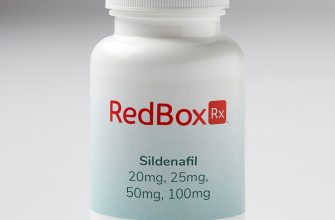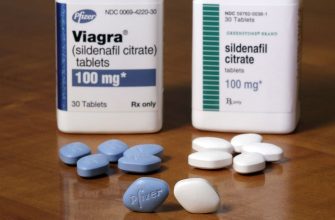Need help understanding Viagra and similar medications? Start by identifying your specific concerns. Are you experiencing erectile dysfunction? Do you have questions about dosage, side effects, or potential interactions with other medications? This guide provides clear, concise information to address these common questions.
Focus on your individual needs. Consider consulting a healthcare professional for a personalized assessment. They can perform a thorough examination, discuss your medical history, and help determine the most appropriate treatment for you. Remember, self-treating can be risky; professional guidance ensures safe and effective medication use.
Common medications in this class include sildenafil (Viagra), tadalafil (Cialis), and vardenafil (Levitra). Each drug has its own unique properties regarding onset of action, duration of effect, and potential side effects. Understanding these differences is vital for making informed decisions. Detailed information on each medication is readily available online and from your doctor.
Safety is paramount. Be aware of potential side effects, such as headaches, flushing, nasal congestion, and visual disturbances. Discuss any pre-existing medical conditions, such as heart disease or high blood pressure, with your doctor before starting any medication. They can help mitigate potential risks and ensure your safety.
- Viagra Type Medications: A Comprehensive Guide
- Understanding PDE5 Inhibitors
- Side Effects and Precautions
- Alternative Treatments
- Finding Reliable Information
- How Viagra and Similar Medications Work
- Common Side Effects of PDE5 Inhibitors
- Conditions Treated with Viagra-Type Medications
- Beyond Erectile Dysfunction
- Important Considerations
- Medication Options & Their Usage
- Choosing the Right Medication: Viagra vs. Cialis vs. Levitra
- Potential Risks and Interactions with Other Medications
- Finding Safe and Reliable Sources for Viagra-Type Medications
Viagra Type Medications: A Comprehensive Guide
Consult your doctor before starting any medication, especially if you have underlying health conditions or are taking other drugs. They can help determine the right medication and dosage for your specific needs.
Understanding PDE5 Inhibitors
Viagra (sildenafil), Cialis (tadalafil), Levitra (vardenafil), and Stendra (avanafil) belong to a drug class called phosphodiesterase-5 (PDE5) inhibitors. These medications work by increasing blood flow to the penis, facilitating an erection. Each drug has a slightly different duration of action and potential side effects.
Viagra typically lasts 4-5 hours. Cialis, known for its longer duration, can remain effective for up to 36 hours. Levitra provides effects similar to Viagra, while Stendra offers a faster onset of action.
Side Effects and Precautions
Common side effects include headache, flushing, nasal congestion, and indigestion. Rarely, more serious side effects may occur. Individuals with heart conditions, low blood pressure, or those taking nitrates should avoid these medications. Alcohol consumption may also amplify side effects.
Always read the medication guide provided with your prescription for a full list of potential side effects and warnings.
Alternative Treatments
Besides PDE5 inhibitors, other treatments for erectile dysfunction exist. These include penile injections, vacuum erection devices, and penile implants. Your physician can discuss these options and help determine the best approach for your situation. Lifestyle changes, such as weight management and exercise, can also positively impact erectile function.
Finding Reliable Information
Use reputable sources when researching medications. Consult your doctor or pharmacist for personalized advice and accurate information. Avoid unverified online sources that may provide misleading or inaccurate details.
How Viagra and Similar Medications Work
Viagra, Cialis, and Levitra belong to a drug class called phosphodiesterase-5 (PDE5) inhibitors. They work by increasing blood flow to the penis.
Specifically, these medications inhibit the PDE5 enzyme. This enzyme normally breaks down a chemical called cyclic GMP (cGMP), which is crucial for achieving and maintaining an erection. By blocking PDE5, these drugs allow cGMP levels to remain high, resulting in relaxed penile muscles and increased blood flow.
This increased blood flow is what allows for a firmer and longer-lasting erection in response to sexual stimulation. It’s important to remember that these medications don’t cause erections on their own; sexual stimulation is still required.
The duration of action varies among these medications. Cialis, for example, can be effective for up to 36 hours, while Viagra’s effects typically last 4-5 hours. Levitra falls somewhere in between.
Each medication might have slightly different side effects and contraindications. Consult your doctor to determine which medication, if any, is right for you and to discuss potential risks.
Common Side Effects of PDE5 Inhibitors
PDE5 inhibitors, like Viagra, Cialis, and Levitra, can cause side effects. These usually are mild and temporary. However, understanding them is key to safe usage.
Headache is a common occurrence, often mild and resolving without intervention. Staying hydrated can help.
Facial flushing, or redness of the face and neck, is another frequent side effect. It’s usually brief.
Indigestion or upset stomach can happen. Taking the medication with food might help minimize this.
Nasal congestion, or a stuffy nose, is reported by some users. Decongestants are generally not recommended without consulting a doctor.
Muscle aches and back pain are possible, usually mild. These generally subside within a few hours.
Visual disturbances, such as blurred vision or changes in color perception, are less common but should be reported to your doctor immediately.
Dizziness is another potential side effect. Avoid activities requiring alertness if you experience this.
Rarely, more serious side effects, such as prolonged erection (priapism) or sudden vision or hearing loss, can occur. Seek immediate medical attention if you experience these.
This information is not exhaustive. Always discuss potential side effects with your doctor before starting any new medication. They can assess your individual risk factors and provide personalized guidance.
Conditions Treated with Viagra-Type Medications
Viagra-type medications, primarily phosphodiesterase-5 (PDE5) inhibitors, primarily treat erectile dysfunction (ED) in men. This involves improving blood flow to the penis, facilitating an erection.
Beyond Erectile Dysfunction
While ED is the most common use, these medications also find application in other conditions:
- Pulmonary Arterial Hypertension (PAH): Sildenafil (Viagra) and other PDE5 inhibitors are used to improve blood flow in the lungs, reducing blood pressure in the pulmonary arteries. This treatment alleviates symptoms and improves quality of life for PAH patients. Dosage and specific medication will vary depending on the individual.
- Benign Prostatic Hyperplasia (BPH): Some studies suggest that PDE5 inhibitors may help improve urinary symptoms associated with an enlarged prostate. However, this is not a primary treatment and is often considered alongside other therapies. Consult your doctor for personalized advice.
Important Considerations
It’s crucial to remember that these medications are prescription-only. A thorough medical examination and discussion with a healthcare professional are necessary before starting any treatment. Individuals with certain pre-existing conditions, such as heart problems or low blood pressure, may not be suitable candidates.
Medication Options & Their Usage
- Sildenafil (Viagra): Primarily for ED and PAH. Dosage depends on the condition being treated.
- Tadalafil (Cialis): Used for ED and BPH, known for its longer duration of action.
- Vardenafil (Levitra): Treats ED and is sometimes prescribed for PAH.
- Avanafil (Stendra): Another ED treatment option, known for its relatively fast onset of action.
Always follow your doctor’s instructions regarding dosage and frequency of medication use. Do not exceed recommended doses, and promptly report any adverse effects.
Choosing the Right Medication: Viagra vs. Cialis vs. Levitra
Your doctor can best determine the right medication for you, considering your individual health profile and preferences. However, understanding the key differences between Viagra (sildenafil), Cialis (tadalafil), and Levitra (vardenafil) can help you participate in this decision.
| Medication | Onset of Action | Duration of Action | Side Effects (Common) | Considerations |
|---|---|---|---|---|
| Viagra | 30-60 minutes | 4-5 hours | Headache, flushing, nasal congestion | Should be taken on an empty stomach. Not suitable for individuals taking nitrates. |
| Cialis | 30 minutes – 2 hours | Up to 36 hours | Headache, back pain, muscle aches | Can be taken with or without food. Longer duration allows for spontaneity. |
| Levitra | 25-60 minutes | 4-5 hours | Headache, flushing, nasal congestion, diarrhea | May be a suitable option for individuals with certain liver conditions, but discuss this with your doctor. |
Viagra provides a relatively fast onset, ideal for planned sexual activity. Cialis offers a significantly longer duration, potentially beneficial for men seeking more spontaneity. Levitra provides a balance between onset and duration. Remember, these are general guidelines; individual responses vary.
Dietary factors and other medications can influence the medication’s efficacy. Open communication with your doctor is paramount to ensure you receive the safest and most effective treatment. Discuss any health conditions or medications you’re currently taking to avoid potential interactions.
Potential Risks and Interactions with Other Medications
Always inform your doctor about all medications you’re taking, including over-the-counter drugs, supplements, and herbal remedies. This includes nitrates used for chest pain, as combining them with Viagra-type medications can cause a dangerous drop in blood pressure.
Alpha-blockers, often prescribed for high blood pressure or enlarged prostate, can also interact negatively. This combination may lead to significantly low blood pressure, potentially causing dizziness or fainting. Your doctor can help you manage these medications safely.
Certain antifungal medications, like ketoconazole and itraconazole, can increase the levels of Viagra-type drugs in your blood, potentially intensifying side effects. Similarly, protease inhibitors, used in HIV treatment, can also have this effect.
Priapism, a prolonged and painful erection lasting more than four hours, is a serious risk. Seek immediate medical attention if you experience this. This complication requires prompt treatment to prevent permanent damage.
Side effects like headaches, flushing, nasal congestion, and visual disturbances are common. However, more serious side effects, including heart problems, are possible. Discuss any concerns with your healthcare provider.
Regularly monitor your blood pressure and consult your doctor if you experience any unexpected symptoms. Open communication is key for safe medication management.
Finding Safe and Reliable Sources for Viagra-Type Medications
Always consult your doctor before starting any medication, including Viagra-type drugs. They can assess your health and determine the appropriate dosage and medication for your specific needs.
Purchase medications only from licensed pharmacies. Verify the pharmacy’s legitimacy through their website and state licensing boards. Look for secure payment gateways (HTTPS) and a physical address.
Be wary of online pharmacies offering unbelievably low prices or requiring no prescription. These are often fronts for counterfeit or unsafe products.
Check online reviews and ratings of pharmacies before making a purchase. Be mindful of overwhelmingly positive reviews; they can sometimes be fabricated.
Use reputable online pharmacies that provide clear information about their licensing, certification, and return policies.
Never share your personal information with unknown sources or click suspicious links claiming to sell medications.
If you have questions or concerns, contact your physician or a pharmacist for guidance.
Report any suspicious online pharmacies or counterfeit medications to the appropriate authorities.








